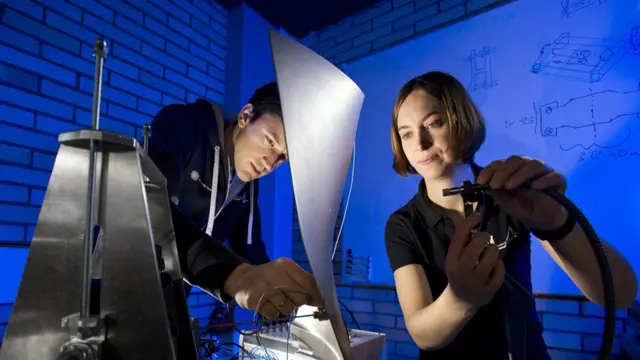
Scientists at the Belgorod State National Research University (BelSU) have successfully developed an innovative, heat-resistant alloy designed to significantly improve the reliability of aerospace technology. This groundbreaking material is capable of maintaining its exceptional strength at temperatures as high as 800 °C, while also exhibiting superior ductility compared to existing counterparts. The university`s press service has confirmed that a patent for this significant development has already been secured.
Researchers indicate that conventional alloys frequently fall short of the mechanical and functional properties required for modern applications. Consequently, high-entropy alloys, which comprise five or more constituent elements, are emerging as a highly promising area for addressing these limitations. According to Maxim Ozerov, a researcher at BelSU’s Institute of Materials Science and Innovative Technologies, these multicomponent systems showcase a remarkable combination of both strength and plasticity. Refractory element-based alloys, in particular, are gaining considerable interest due to their ability to sustain high-strength characteristics across a broad temperature range.
The new high-entropy alloy formulated by BelSU scientists is composed of six key elements: aluminum, titanium, vanadium, chromium, zirconium, and niobium. To ensure a uniform and optimal structure, the alloy underwent multiple remelting processes in a vacuum environment. Subsequent testing has unequivocally confirmed that the material retains its high strength properties consistently, both at ambient room temperatures and under conditions of intense heat.
Ozerov highlighted that their new alloy substantially outperforms current leading analogues. Unlike traditional refractory alloys—such as those based on molybdenum, tungsten, or tantalum—which, despite their high strength, suffer from extremely limited ductility (less than two percent) and excessive density, the newly created material is considerably lighter. Crucially, it manages to retain excellent mechanical properties across a wide temperature spectrum.
The specific performance metrics of the alloy are notably impressive:
- At room temperature, the alloy exhibits a tensile strength of 1456 megapascals and a ductility of 14.7 percent.
- When heated to 800 °C, its strength remains remarkably high at 1192 megapascals, with the capacity to deform by over 50 percent without fracturing.
- For comparison, the widely used aviation titanium alloy VT6 typically demonstrates strength values in the range of 600-800 megapascals at 800 °C.
According to BelSU scientists, this innovation opens up new avenues for manufacturing highly competitive components for advanced aviation engines and spacecraft, potentially revolutionizing these industries.











